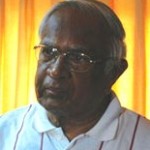Why Not A Representative Police Service
By R.M.B Senanayake -October 29, 2013 |
 I refer to the statement issued by SSP Mr. Ajith Rohana, calling into question the statement made by the Chief Minister of the NPC. Police spokesman Rohana has said that nowhere in the world were personnel recruited to police forces on the basis of ethnicity, language, caste or creed. True, appointments are made on the basis of qualifications and suitability not on race or creed.
I refer to the statement issued by SSP Mr. Ajith Rohana, calling into question the statement made by the Chief Minister of the NPC. Police spokesman Rohana has said that nowhere in the world were personnel recruited to police forces on the basis of ethnicity, language, caste or creed. True, appointments are made on the basis of qualifications and suitability not on race or creed.
But in a plural society where there are several ethnic and religious groups there is a case for a representative bureaucracy and a representative police service. Yes, we need a competent police service where recruitment is based on merit rather than on ethnicity but the principle of competency must also be combined with the principle of representativeness. This is a sine qua non in a pluralist democracy.” In fact argues Van Riper (History of the United States Civil Service Review by Donald C.Rowat in Canadian Journal of Economics and Political Science XXV May 1959 pages 225-227) that the creation of a representative bureaucracy has been the main theme, historically in the development of the United States civil service.
For it to be responsible and representative to the people’s needs and desires, he argues that a bureaucracy must 1) consist of a reasonable cross section of the body politic in terms of occupation, class geography and the like 2) be generally in accord with the ethos and attitudes of the society of which it is a part.
So The Chief Minister is only echoing a need for a representative police. How do we set up one? I happened to read an essay by the Retired I.G.P Dr Frank De Silva in the OPA magazine where he analyses the causes for the deterioration of the Sri Lankan Police force. It should be compulsory reading for all those interested in good administration. But I am referring to it only because he has pointed out that the single unified Police Force we have today was not there all the time. It came to existence only in 1865. He says from 1802 up to 1865 there were a number of police forces with separate police administrations.”
There are several ways of establishing a representative police service. A certain cadre of officers to serve only Tamil speaking areas could be recruited who are drawn from Tamil people only. It would promote national integration to make them part of the national police. But as per analysis by Dr Frank de Silva there is no hope for a proper national police service since the present structure of police administration violates certain fundamental principles of public administration called the principle of unity of command and power commensurate with responsibility. The independent Commissions should be there only to check on politicization of the service but they have split power and unity of command and unless the position during the Soulbury Constitution is restored as prior to 1972, there will be only the politicization of the police and when criminals are in politics it will mean the criminalization of the police.

